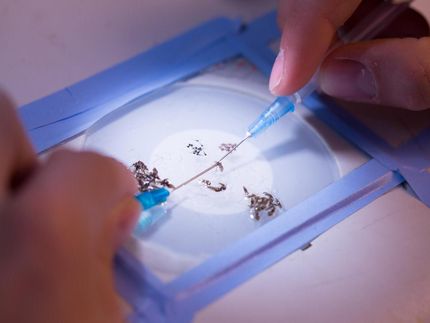Cenix BioScience and The Instituto de Medicina Molecular Initiate First Genome-Scale RNAi Screen for Novel Malaria Genes
Advertisement
Cenix BioScience GmbH (Dresden) and the Instituto de Medicina Molecular (IMM, Lisboa) have initiated a research collaboration to identify human genes required for the malaria infection process, using systematic genome-scale RNAi screening. The identified genes will represent excellent candidates for the development of novel anti-malarial therapeutics.
The laboratory of Dr. Maria Mota, based at the IMM, has pioneered in recent years an in vitro assay system to monitor the crucial process of sporozoite infection using the Malaria parasite Plasmodium berghei ANKA with cultured human liver cells. Recognizing the assay's enormous discovery potential if it could be applied at the genome scale, Dr. Mota approached Cenix BioScience in 2004 to address this challenge. The Dresden-based specialist successfully completed a collaborative pilot study to adapt and optimize Mota's malarial infection assay for high throughput RNAi screening. The resulting dataset established the solid proof of principle needed to secure the grant funding for the actual screen.
This screen, involving both Cenix and IMM scientists, is now under way in Dresden and, based on the level of funding secured to date from the European Science Foundation and the Fundação para a Ciência e Tecnologia (Portugal), will cover over 800 human genes including all known kinases, key regulators of nearly all cellular pathways.
While the ongoing project is already yielding novel discoveries, the two partners are continuing their search for further funding sources, public or private, to extend this crucially important study to its fullest possible scope, i.e. the entire human genome. With Dr. Mota's excellent assay and Cenix's leading track record in this field, including arguably the most comprehensive genome-wide RNAi screen published to date (Nature 434:462, Mar 2005), such a goal is technically well within reach for the group.
























































